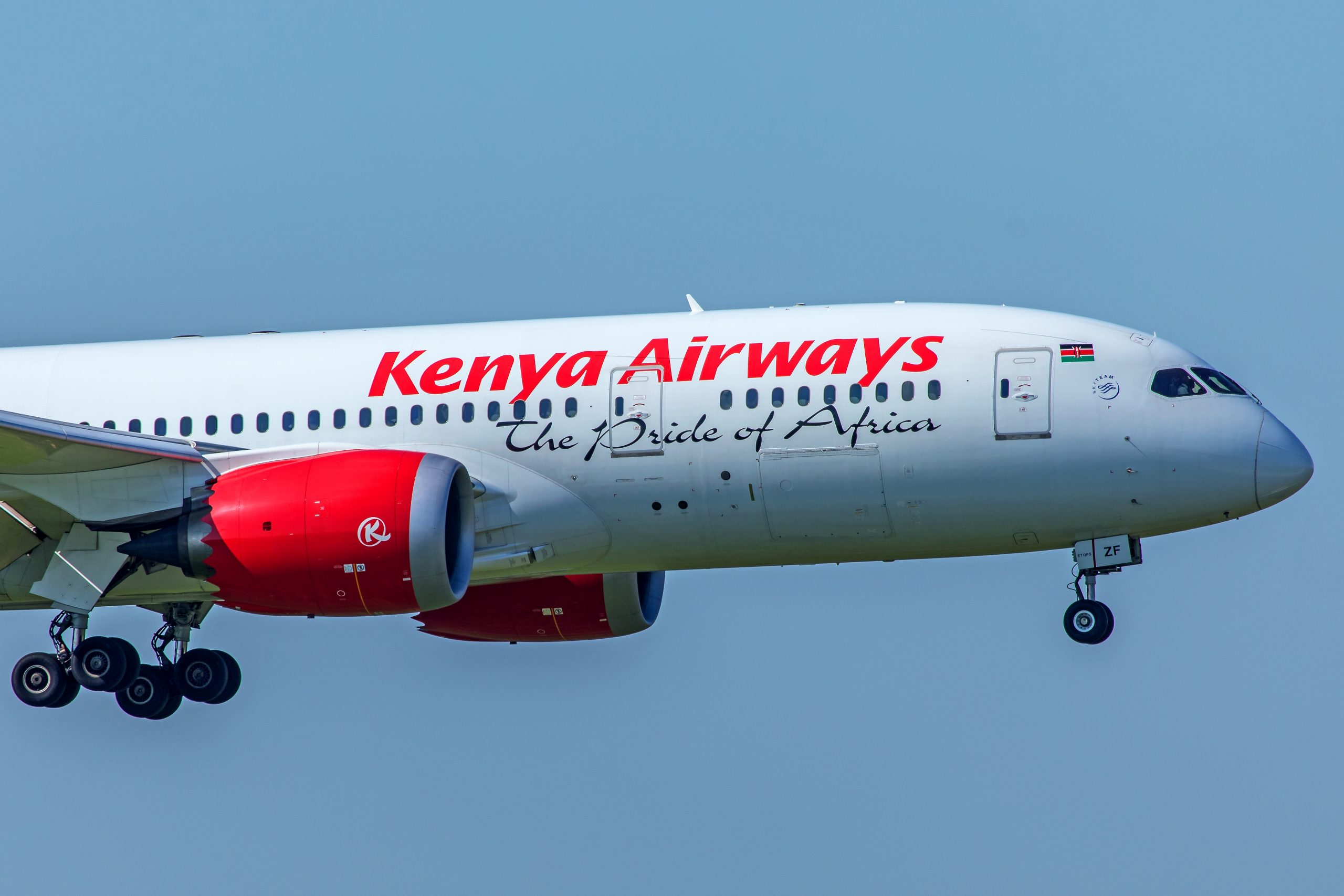Kenya Airways will be split into various subsidiaries in a State-backed restructuring plan that is aimed at returning the lossmaking national carrier to profitability.
Roads, Transport and Public Works Cabinet Secretary nominee Kipchumba Murkomen told a parliamentary vetting panel Wednesday that the reforms will lead to the breaking of Kenya Airways along its main business lines of cargo and passenger.
Its other subsidiaries envisaged by the new administration are charter services and new businesses like drone services.
Mr Murkomen said President William Ruto was working with Kenya Airways and other players to restructure the airline and return it to profitability.
The fresh restructuring plan comes after the State dropped the favoured long-term solution that was anchored on nationalisation of the airline.
The plan approved by lawmakers in July 2019 would have led to the delisting of the airline from the Nairobi Securities Exchange (NSE).
The national carrier has received multi-billion shilling State bailouts amid delayed recovery from a travel slump following Covid-19.
Mr Murkomen told MPs that Nairobi is the leading cargo destination in the region yet KQ, as it is known by its international code, controls only 10 percent of cargo market share.
“We need to separate cargo from passenger services so that KQ benefits from the business,” Mr Murkomen said.
“We intend to create subsidiaries in KQ. We need to have a passenger airline, cargo airline and charter airline. We might also need KQ to have other businesses on the side like drone services and surveying services as one way of raising revenue,” he added.
He did not offer details how the breakup of KQ will help turn around the carrier that has been in losses for over a decade. KQ’s main business lines—cargo, passenger and handling—are all in losses. Passenger service returned an operating loss of Sh4.5 billion, cargo Sh1.74 billion and handling Sh166 million.
This marks a departure from the Treasury’s earlier position to pursue a turnaround under the plan to nationalise KQ. A law to pave the way for the nationalisation of the airline, which had been proposed before the pandemic, is before Parliament.
Kenya wanted to emulate countries like Ethiopia which run air transport assets — from airports to fuelling operations —under a single company, using funds from the more profitable parts to support others.
Under the model approved by MPs, KQ would become one of four subsidiaries in an aviation holding company.
The others would be Jomo Kenyatta International Airport, an aviation college and the Kenya Airports Authority operating all other airports.
The previous administration, which was replaced by Dr Ruto’s on September 13, pushed for the restructuring of the carrier on the back of the multi-billion-shilling bailout after dropping the nationalisation plan.
Mr Murkomen Wednesday told Parliament that the State would not convert its debts or bailout cash into shares. “We do not want to cross the 50 percent shareholding because we want KQ to remain a privately owned company,” he said. The government owns 48.9 percent of KQ shares.
“We have to ask ourselves why KQ is in the situation it is currently. It is because of mismanagement of project Mawingu, but there is a restructuring process currently underway led by President Ruto,” he said.
KQ recorded a ninth consecutive half-year loss, sinking it Sh15 billion deeper into a negative equity position.
The airline, which has been surviving on State bailouts since the Covid-19 pandemic, reported a Sh9.8 billion loss in August — a better performance than the Sh11.48 billion loss it recorded in the same period a year earlier.
It booked a further Sh5.3 billion loss on hedged foreign exchange differences, driving its total comprehensive loss to Sh14.9 billion.
Source: Business Daily






